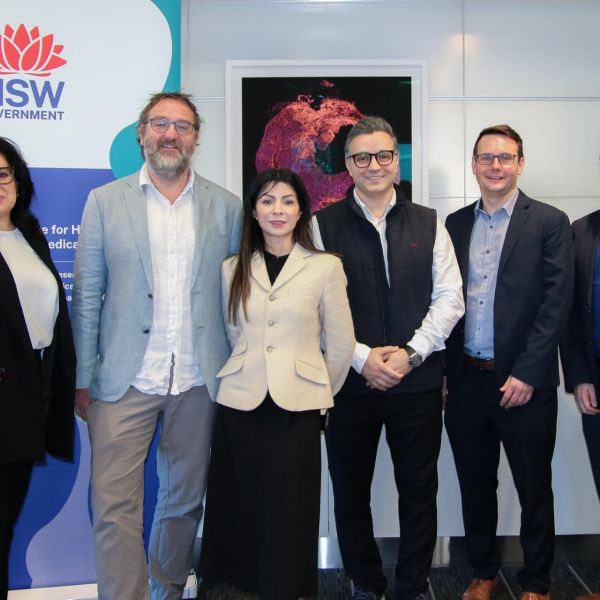University experts part of new network to reduce reliance on animals in research
Researchers from the University and the Hunter Medical Research Institute are part of a new statewide network that will help develop innovative strategies to reduce the use of animals in medical research.

The Non-Animal Technologies Network is part of a $4.5 million package announced by the NSW Government that aims to support groundbreaking discoveries in the field of health and medicine while developing alternative methods that support the 3Rs of animal-based research: Replace, Reduce, Refine.
Dr Gerard Kaiko and Professor Simon Keely are the University and HMRI representatives on the new network. They will lend their advice and expertise alongside experts from the University of NSW, the University of Wollongong, the University of Technology Sydney, the University of Sydney, the Victor Chang Cardiac Research Institute and the Children’s Medical Research Institute.
Deputy Vice-Chancellor of Research and Innovation for the University welcomed the NSW Government's investment in this area and noted the importance of supporting the 3Rs.
"We know that involving animals in biomedical and biological research can be a challenging subject, " said Professor Zee Upton, Deputy Vice-Chancellor of Research and Innovation at the University of Newcastle.
"We also know that animal models help researchers develop better treatments for cancer, dementia, drug addiction, lung disease, chronic pain, HIV, COVID-19 and countless other serious medical conditions."
Animal models are often used alongside other techniques to answer key biological questions that help researchers find new and better ways to treat disease, addiction and illness.
“The University and the Hunter Medical Research Institute have a long history of delivering medical breakthroughs, and we remain firmly committed to the ethical treatment of animals in our care,” Professor Upton added.
“We also strongly support the development of non-animal technologies that can advance research outcomes while reducing our reliance on animal models. The Non-Animal Technologies Network is a positive step in the right direction, and we're proud to be part of it.”
The $4.5 million package announced by the NSW Government comprises three pillars:
- a research pillar to accelerate research progress, which will include a competitive research grant program with recipients set to focus on developing solutions to reduce animals in medical research.
- the development of infrastructure to establish the Non-Animal Technologies Network
- the creation of a working group to develop regulatory approaches for non-animal technologies.
Read the NSW Government announcement here.
Related news
- Students, take the lead: how a peer-led program could transform our kids’ trajectories
- Post‑mining research comes to life in community art exhibition
- World-leading MRI upgrade boosts research capability at HMRI Imaging Centre
- New equipment brings cancer's complexity into focus
- Yes, weight-loss drugs work but nutrition needs attention
The University of Newcastle acknowledges the traditional custodians of the lands within our footprint areas: Awabakal, Darkinjung, Biripai, Worimi, Wonnarua, and Eora Nations. We also pay respect to the wisdom of our Elders past and present.


